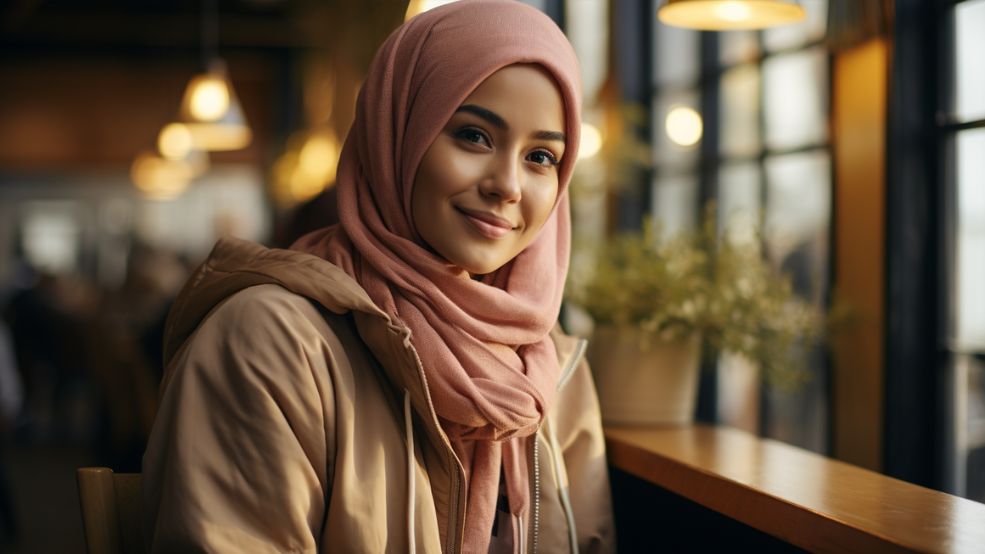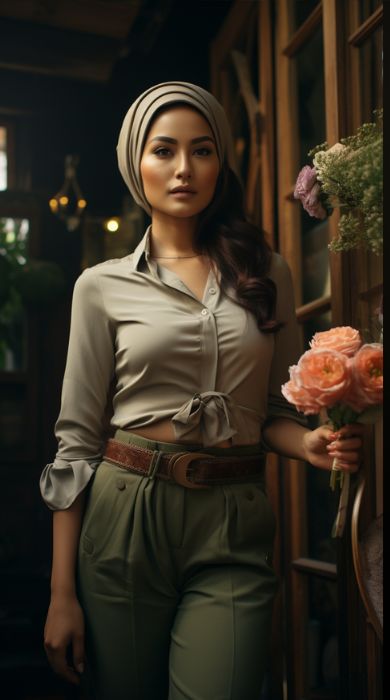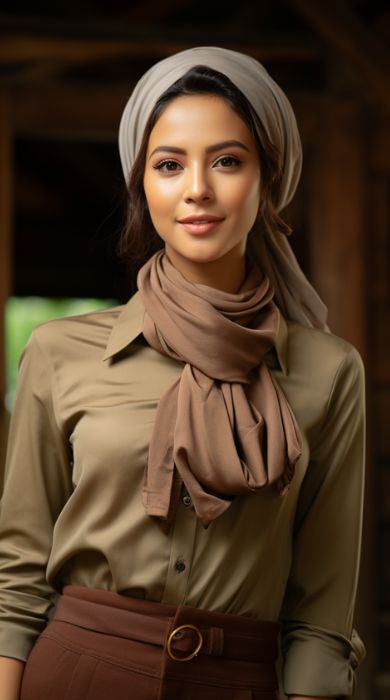Indonesian Mail-Order Brides: Cultural Practices and Legal Aspects

Welcome to NewDirectionDating, where your journey to love transcends international boundaries. I, Robyn Wahlgast, will guide you through the intricate world of Indonesian mail-order brides. Delve into the complex interplay of cultural, legal, and ethical dimensions shaping the lives of Indonesian women in the mail-order bride industry.
Hear compelling stories from women like Ayu Sutanto, offering personal insights into the realities and motivations behind becoming an Indonesian mail-order bride. Understand the legal nuances and procedural steps necessary for bringing your Indonesian bride to the U.S., including the critical aspects of international marriage laws and visa processes.
Learn about adapting to cultural differences, managing expectations, and fostering mutual respect in your relationship with a bride from Indonesia. I’ll delve into the ethical considerations and human rights perspective surrounding the mail-order bride industry in Indonesia and worldwide. I will also discuss the importance of protecting the rights and dignity of Indonesian mail-order brides.
Finally, I’ll help you navigate the complexities of cultural integration and adaptation with your wife from Indonesia. Join me in this enlightening journey to discover if an Indonesian mail-order bride could be your ideal partner.
Why do some Indonesian women decide to become mail-order brides and what are their motivations?

Hello Ayu, thank you for having me. Could you please introduce yourself and tell us a bit about your life and experiences?

Hello Robyn, it’s a pleasure to meet you. My name is Ayu Sutanto, and I’m 29 years old. I was born and raised in Bandung, Indonesia. I’m happily married to my American husband, Michael Johnson, and we currently live in Austin, Texas. We’ve been married for six years now, and we have two lovely children: a son, Arif, who is five, and a daughter, Sari, who is three years old. Life has been an incredible journey since I moved from Indonesia, and being a former mail-order bride has been an interesting part of my story.

Let’s now talk about why some Indonesian women decide to become mail-order brides. What were the factors that most influenced your decision to seek marriage abroad?

Certainly, Robyn. Economic factors played a crucial role in my decision to become a mail-order bride. In Indonesia, many women face limited job opportunities and lower wages, which makes it challenging to support ourselves and our families. For me, the hope of a better financial stability was a strong motivator. Moreover, the potential to provide a more secure future for my children was paramount. The allure of potentially better living conditions and the opportunity for my kids to access higher education in the U.S. were significant factors. I also saw it as a chance to experience a different culture and broaden my horizons.

Could you share how gender roles and societal expectations in Indonesia influenced your choice to become a mail-order bride?

In Indonesia, societal and cultural expectations heavily influence a woman’s life. Traditional gender roles often dictate that women should prioritize family and household responsibilities. While these roles are respected, they can limit personal and professional growth. For many Indonesian women, becoming a mail-order bride is not only about finding love but also about seeking opportunities for self-development and breaking free from restrictive cultural norms. It’s a step towards a more balanced life where personal aspirations and family duties can coexist more harmoniously. This was certainly the case for me. I wanted to find a partner who respected my ambitions and who I am as an individual, which I found in my husband, Michael.

Can you elaborate on how educational aspects and demographic trends in Indonesia have influenced your decision to engage in international marriage?

In Indonesia, educational opportunities for women, although improving, are still limited in some areas. Many Indonesian women seek further education and career advancement, which can be difficult in our traditional society. Demographically, there’s a significant imbalance in some regions, with more women than men in the marriageable age group, leading to fewer marriage prospects. These factors, combined with the desire for intellectual growth and better career opportunities, often drive Indonesian women to look for partners abroad who value and support their ambitions.

How have the historical evolution of marriage practices and the development of the mail-order bride industry in Indonesia influenced your journey?

Indonesia has a rich history of diverse marriage practices, influenced by its cultural and religious diversity. Historically, arranged marriages were common, and in some ways, the modern mail-order bride system is a continuation of these practices in a globalized context. The development of the mail-order bride industry in Indonesia reflects both the technological advancements and the shifting perspectives on marriage and cultural exchange. Women now have more autonomy in choosing their partners, even if it means looking beyond our borders, which was unthinkable a few generations ago.

After immigrating to the United States, have you experienced prejudice because you are Indonesian? Do you think these stereotypes may be related to the way Indonesian brides are portrayed in movies or media?

Unfortunately, yes, Robyn. Some stereotypes persist, often influenced by media portrayals. For instance, Indonesian women are sometimes depicted as submissive or overly exotic in films, which is a gross oversimplification. These stereotypes can lead to misunderstandings and prejudice. In reality, Indonesian women are diverse in character and aspirations. It’s important for media to portray us more accurately, reflecting our true diversity and individuality, which is often overlooked.”
What are the legal aspects surrounding the mail-order bride industry in Indonesia?
Indonesian mail-order brides face a complex web of legalities when marrying internationally. Indonesian legal regulations on marriage require consent and adherence to age limits, setting a foundation for lawful unions. When these brides engage in cross-border marriages, they must navigate through international marriage laws, which vary significantly by country.
For Indonesian women marrying U.S. citizens, the fiancée visa (K-1) becomes a critical document. This visa permits them to travel to the U.S. for marriage, aligning with immigration policies for spouses. Post-marriage, the adjustment to permanent resident status is governed by specific visa requirements for marriage.

Cross-border marriage legislation aims to protect Indonesian brides abroad. These laws, coupled with marriage fraud prevention laws, ensure the legitimacy of marriages and safeguard against exploitative practices. Given the global concern over human trafficking, human trafficking laws are rigorously applied in these scenarios, ensuring the protection of Indonesian women’s rights.
In Indonesia, marriage agency regulations oversee international matchmaking services, enforcing legal protections for foreign brides. These agencies must comply with both Indonesian and international regulations, including the International Marriage Broker Regulation Act (IMBRA) in the U.S., which provides critical safeguards against abuse and exploitation.
How can Indonesian women ensure their safety when marrying internationally?

For Indonesian mail-order brides, understanding and navigating the legal landscape in foreign countries like the U.S. and United Kingdom is crucial for safety. Awareness of legal rights of Indonesian brides is the first step. In cases of domestic abuse, Domestic Violence Act (U.S.) and Domestic Abuse Act (U.K.) offer protections. These include access to emergency support services and mechanisms for reporting marital issues.
Safety planning for immigrants is vital, encompassing strategies like maintaining important documents and knowing local emergency contacts. Legal recourse in abuse cases is available; in the U.S., the Violence Against Women Act (VAWA) allows abused spouses to file for immigration relief independently. The U.K. has similar provisions under its immigration laws.
Awareness of exploitation risks and support for abuse survivors are provided by various NGOs and embassies. Understanding foreign legal systems helps in navigating protective measures against fraud and securing safe housing options. Crisis intervention resources and advocacy for immigrant rights play critical roles in ensuring safety. Empowerment through education about rights and resources is key to security in cross-cultural marriages.
How to navigate cultural differences when marrying an Indonesian woman?
Navigating cultural differences in marriages between Indonesian women and their foreign spouses requires a nuanced understanding of both cultures. Indonesian mail-order brides, or Indonesian wives, often face unique challenges and opportunities in these relationships. Here’s a closer look at these dynamics:
Daily Life in Mixed Marriages
Couples often encounter challenges in daily routines, from food preferences to social customs. Indonesian wives, for instance, might introduce traditional dishes like Nasi Goreng or Rendang at home, while adapting to their partner’s cuisine. Language plays a crucial role, with many Indonesian women learning their partner’s language and vice versa, fostering better understanding and reducing miscommunications.
Managing Cultural Expectations in Marriage
In Indonesian culture, communal and familial bonds are strong, shaping the Indonesian spouse’s approach to marriage. They often expect close ties with extended family, a concept that may be new to their foreign partners. Conversely, Indonesian women might adapt to the more individualistic approaches of their spouses, finding a balance between independence and communal living.
Cross-Cultural Parenting and Household Management
Parenting in mixed marriages involves merging two parenting philosophies. Indonesian women often emphasize respect, community values, and discipline, influenced by Indonesia’s communal culture. Integrating these with their partner’s parenting style, which may emphasize independence and self-expression, leads to a unique parenting approach. Joint financial decision-making also becomes crucial, blending the Indonesian practice of communal wealth with individualistic approaches.
Gender Roles and Expectations
Gender roles in Indonesian society are traditionally defined, but in cross-cultural marriages, these roles can evolve. Indonesian women, known for their resilience and adaptability, may adopt more egalitarian roles in countries like the U.S. or U.K., balancing traditional expectations with new roles and responsibilities.

How do mail-order brides from Indonesia adapt to new cultures when marrying abroad?
As an expert in cross-cultural relationships, I’ve observed how Indonesian mail-order brides adapt to new cultures when marrying abroad. Their journey is complex and multifaceted, encompassing various aspects:
- Cultural Assimilation Experiences: Indonesian brides often face the challenge of blending their rich cultural heritage with their new country’s customs. This includes adapting to different social norms and lifestyle practices in countries like the U.S., Canada, the U.K., and Australia. Balancing respect for their Indonesian roots while embracing new cultural experiences is a key part of their adaptation.
- Navigating Language Barriers: Language is a significant hurdle. Learning a new language is not just about communication but also about understanding cultural nuances and expressions. Indonesian brides often invest time in language courses or informal learning to bridge this gap.
- Maintaining Indonesian Identity: While adapting to new environments, Indonesian women strive to maintain their cultural identity. This can involve cooking traditional Indonesian meals, practicing cultural rituals, and connecting with local Indonesian communities to keep their heritage alive.
- Emotional and Psychological Adaptation: The emotional and psychological impacts of moving to a new country can be profound. Indonesian brides may experience a range of emotions from excitement to homesickness. Finding support systems, such as community groups or counseling, is crucial for their mental well-being.
- Building New Social Networks: Creating a new support system is vital. This can mean developing friendships within local communities, participating in local events, and sometimes finding fellow Indonesians or other expatriates to form a sense of community.

How do Indonesian mail-order brides differ from women of other Asian nationalities?
Now let’s talk about the unique physical traits and diverse mentality that distinguishes Indonesian mail-order brides from other Southeast Asian women.
What are the distinctive features of Indonesian women’s appearance?
Indonesian women typically stand out with their average height of approximately 152 cm (5 feet) and an average weight of around 57 kg (125 lbs), presenting a contrast to the generally taller stature of women from the Southeast Asian region. The predominant body shape is slender to moderately curvaceous, offering a distinct silhouette.
Characteristic facial features include naturally dark, wavy hair, dark brown eyes, and a gentle yet pronounced oval face shape. Their skin tone is often a radiant, golden brown, setting them apart from the lighter complexions of Vietnamese women and the darker tones typical of Filipino women.
What kind of mentality and temperament do Indonesian mail-order brides have?
When comparing Indonesian mail-order brides to other Southeast Asian nationalities, notable differences emerge. Unlike most married Vietnamese women, who are known for their conservative and family-oriented nature, Indonesian women often display a more relaxed and adaptable temperament in family life. In contrast to Cambodian mail-order brides, they tend to be more outspoken and assertive in relationships.
While most mail-order brides from the Philippines might be more extroverted and sociable, Indonesian women often balance sociability with a serene dignity. With Malaysian mail-order brides, who are often more career-focused, Indonesian women typically prioritize family and homemaking, yet without compromising their personal ambitions.



























